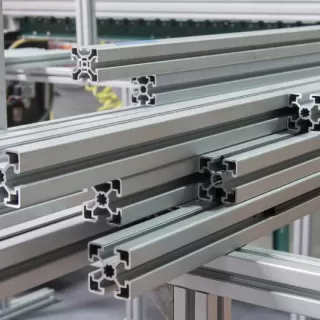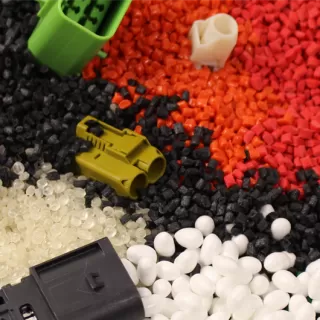Welcome to our comprehensive guide on CNC milling materials. In this article, we will delve into the world of Computer Numerical Control (CNC) milling and explore the wide array of materials used in this machining process. Whether you are an industry professional or a curious enthusiast, understanding these materials is essential for achieving outstanding results in CNC milling projects.
CNC milling is a versatile and precise machining technique widely used in various industries such as aerospace, automotive, medical, and electronics. The key to successful CNC milling lies not only in the efficiency of the machine but also in selecting the most suitable material for the specific project.
Each material possesses unique properties, which directly impact the milling process, tool life, surface finish, and overall part quality. The correct choice of material ensures enhanced performance, cost-effectiveness, and ultimately, customer satisfaction.
Let's explore some of the most common CNC milling materials, along with their respective advantages and applications:
Aluminum is a popular choice in CNC milling due to its exceptional properties, such as lightweight, high strength-to-weight ratio, and excellent corrosion resistance. It is commonly used in aerospace, automotive parts, and consumer electronics.
Steel is another widely used material in CNC milling, known for its strength, durability, and machinability. It finds applications in tooling, machine components, and structural parts.
Brass is a metal alloy composed of copper and zinc, offering good machinability and electrical conductivity. It is frequently used in decorative components, electrical connectors, and musical instruments.
Titanium boasts high strength, low density, and exceptional corrosion resistance, making it ideal for aerospace, medical implants, and marine applications. However, its hardness poses challenges during CNC milling, requiring appropriate tooling and cutting strategies.
Plastics, such as ABS, PVC, and acrylic, are widely machined in CNC milling due to their versatility, low cost, and lightweight properties. These materials find applications in various industries, including packaging, automotive, and electronics.
When selecting the appropriate material for your CNC milling project, several factors should be taken into account:
Understand the mechanical, thermal, and chemical properties of the material to ensure it meets the project requirements.
Consider the complexity of the design, required tolerances, and the intended application of the final product.
Assess the material's machinability, which affects tool wear, cutting forces, and surface finish.
Consider the material's cost and availability, ensuring it aligns with your budget and project timeline.
Consider eco-friendly materials to support sustainability initiatives and reduce environmental impact.
For precision parts, materials like aluminum, brass, and steel are often preferred due to their excellent dimensional stability and machinability.
Titanium and aluminum are widely used in aerospace components due to their lightweight and high strength properties.
Yes, plastics like ABS, PVC, and acrylic are suitable for CNC milling, especially for prototyping and lightweight applications.
Harder materials, such as titanium, require appropriate tooling and machining strategies to prevent excessive tool wear and ensure optimal results.
Yes, stainless steel is a commonly used material in CNC milling, but its hardness may require specialized tooling for efficient machining.
Selecting the right CNC milling material is crucial for achieving high-quality results and maximizing the efficiency of your machining process. Consider the specific requirements of your project, the material properties, and the desired application to make an informed decision.
If you want to know more information about CNC milling material, please contact us. We will provide professional answers.
Related Knowledge


